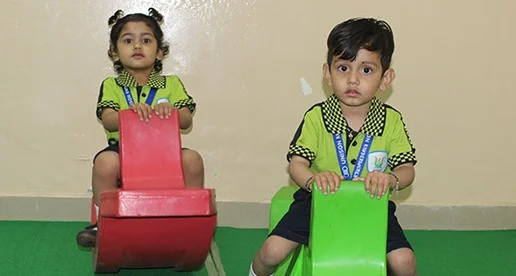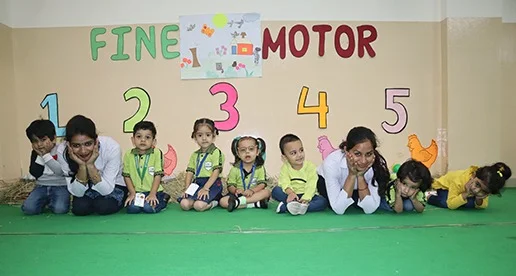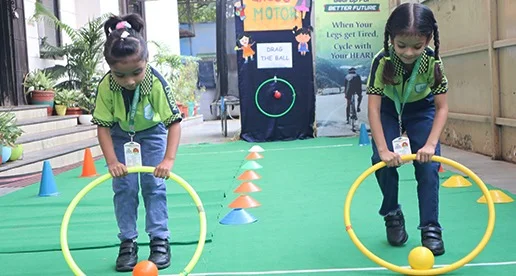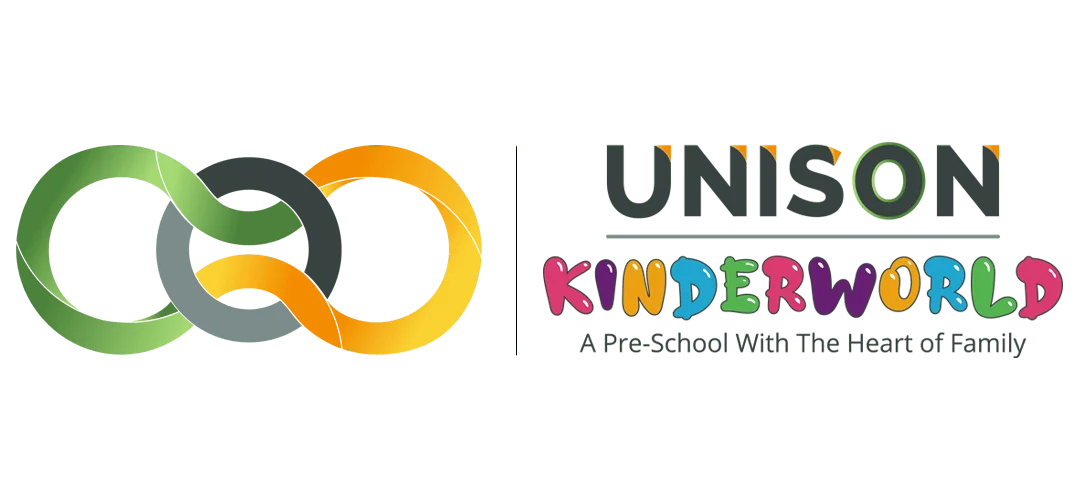Our Curriculum
The Unison Kinderworld School provides a stimulating and nurturing environment for young children to grow and learn. The school curriculum is a balanced blend of traditional and contemporary approaches to early childhood education.
Our school’s curriculum is structured around six main categories which are:

01. Language:
Language development is an essential component of our kindergarten curriculum. During this time, youngsters build their vocabulary, grammar, and comprehension skills. To enhance language development, the curriculum includes activities such as learning phonics, expanding vocabulary, developing reading fluency, improving handwriting and fine motor skills, and expressing thoughts and ideas clearly in group conversations.

02. Cognitive:
The school curriculum places a strong emphasis on developing students’ cognitive skills. It includes mental exercises that encourage learning, reasoning, problem-solving, and critical thinking. By participating in these activities, students can enhance their memory, focus, creativity, and numeracy abilities. Memory games, puzzles, narrative, and numeracy drills are examples of these activities. Their interest in learning increases, which boosts their academic performance and promotes personal development.

03. Socio-Economic:
Socio-emotional activities are an important aspect of the curriculum, as they support the development of crucial social and emotional abilities in children. By encouraging kids to cooperate, share, and have empathy, these activities help children develop socially and emotionally. They also help kids manage and express their emotions. They also provide a secure and nurturing atmosphere for kids to learn and develop, encouraging optimistic learning attitudes and improving their overall well-being.

04. Fine Motor Skills:
Fine motor skills are essential for children’s development since these enable them to execute daily tasks like writing, using utensils, and buttoning clothes. Drawing, painting, cutting, and beading are examples of activities that entail the use of small muscles in the hands, fingers, and wrists. As they improve hand-eye coordination, agility, and precision—which are essential for both academic and non-academic tasks—these activities are an essential part of the school curriculum. Furthermore, these activities encourage children’s creativity, independence, and self-esteem.

05. Gross Motor Skills:
Gross motor skills include broad muscle groups for movement and coordination, which are critical for the physical development of children. Children learn strength, balance, and endurance through running, jumping, and climbing exercises at school, which promote general health and well-being. Such activities are essential components of a well-rounded curriculum because they foster cognitive, social, and emotional growth through movement, social engagement, and self-confidence building.

06. Personal Awareness:
Personal awareness exercises are a significant element of the school curriculum since they foster self-awareness, self-esteem, and emotional intelligence. Through these activities, kids can better understand their feelings, ideas, and actions and learn how to control them. Storytelling, meditation, and group conversations are all examples of personal awareness activities. By engaging in these activities, children learn to understand and manage their emotions, form healthy connections, and develop a positive self-image.

